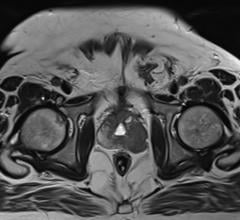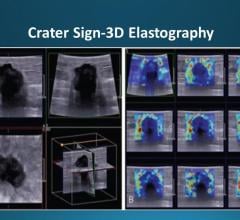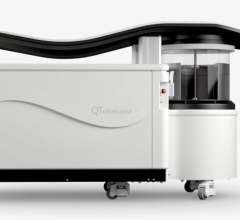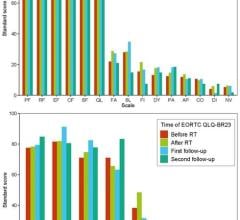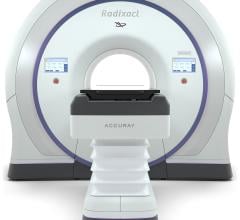
October 1, 2014 — Newly published European Society for Medical Oncology (ESMO) clinical guidelines for the treatment of metastatic colorectal cancer (mCRC) endorse radioembolization, specifically with Yttrium-90 resin microspheres, as a clinically proven technology to "prolong time to liver tumor progression" in mCRC patients who have failed to respond to available chemotherapy options.
SIR-Spheres Y-90 resin microspheres, the lead product of Sirtex Medical Ltd., is the only product used for radioembolization or selective internal radiation therapy (SIRT) that is recommended in the new ESMO guidelines.
The new guidelines, authored on behalf of the ESMO Guidelines Working Group by professors Eric Van Cutsem (Leuven, Belgium), Andres Cervantes (Valencia, Spain), Bernard Nordlinger (Paris, France) and Dirk Arnold (Freiberg, Germany) were published online in a September 2014 supplement to the Annals of Oncology.
"We are very pleased that the authors of major international clinical guidelines in the treatment of mCRC have singled out radioembolization, and particularly our unique product, SIR-Spheres Y-90 resin microspheres, as an appropriate treatment for patients with colorectal liver metastases that have failed to respond to chemotherapy," said Nigel Lange, CEO of Sirtex Medical Europe GmbH. "We believe the new ESMO clinical guidelines will have an immediate effect on improving patient access to SIR-Spheres Y-90 resin microspheres across Europe."
As clinical evidence for the new ESMO recommendation, the authors cited a multicenter randomized controlled study conducted by Alain Hendlisz (Brussels, Belgium) and colleagues. The Hendlisz study was a phase III trial comparing intravenous fluorouracil infusion with yttrium-90 resin microspheres for liver-limited metastatic colorectal cancer refractory to standard chemotherapy.
In April 2013, Sirtex announced it had completed recruitment of patients for SIRFLOX, a 500-patient randomized clinical study that compares the use of SIR-Spheres Y-90 resin microspheres in combination with standard chemotherapy to standard chemotherapy alone in the treatment of patients recently diagnosed with inoperable mCRC, which is much earlier in the treatment paradigm. Data from SIRFLOX are expected in 2015.
The new ESMO clinical guidelines state that 447,000 cases of colorectal cancer (CRC) are reported annually in Europe, and 215,000 European patients die from the disease each year. It is the second-most common cancer among both men and women. When CRC spreads, or metastasizes, to other parts of the patient's body it becomes mCRC, which is the subject of the new ESMO guidelines.
Of critical importance, 25 percent of all patients who are newly diagnosed with cancer in their bowels already have mCRC at the time of their diagnosis. One-half of all colorectal cancer patients will eventually suffer from mCRC. The liver is generally the first and most frequent site of these metastases, which is why the multidisciplinary cancer teams that ESMO recommends to direct the management of mCRC increasingly use combinations of systemic and local treatments, such as liver-directed radioembolization with SIR-Spheres Y-90 resin microspheres to achieve optimal patient outcomes.
SIR-Spheres Y-90 resin microspheres are used to deliver SIRT, a proven technology for inoperable liver tumors that delivers substantial, targeted doses of radiation directly to the cancer. In a minimally invasive treatment, millions of SIR-Spheres microspheres are infused via a catheter into the liver, where they selectively target liver tumors with a dose of internal radiation up to 40 times higher than conventional radiotherapy, while sparing the adjacent healthy liver tissue.
Manufactured by Sirtex Medical Ltd., SIR-Spheres microspheres are approved in Australia, the European Union (CE mark), Argentina (ANMAT), Brazil, Switzerland, Turkey and several other countries in Asia such as India, Korea, Singapore and Hong Kong.
SIR-Spheres microspheres also have a full premarket approval (PMA) by the U.S. Food and Drug Administration (FDA) and are indicated in the United States for the treatment of non-resectable metastatic liver tumors from primary colorectal cancer in combination with intra-hepatic artery chemotherapy using floxuridine. Additionally, SIR-Spheres microspheres are supplied in countries such as Israel, New Zealand, Malaysia, Taiwan and Thailand.
For more information: www.sirtex.com


 April 05, 2024
April 05, 2024 

